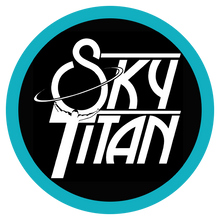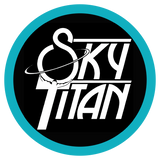AI in the Studio: Will Robots Write Our Favorite Songs Next?
It’s 2 a.m. in the studio.
The coffee’s cold.
The mix is on loop.
And suddenly, your “bandmate” suggests a chord progression you’ve never heard before.
They don’t need breaks.
They don’t get tired.
They aren’t human.
Welcome to the era of AI in music, where ghostwritten lyrics, machine-made beats, and even full albums are already happening. The question isn’t whether AI can make music. It can. The question is: should we hand it the mic… or keep it in the booth as a tool?
Shadows on the Stage: The Dark Side of AI in Music
Before we get lost in shiny tech promises, it’s worth asking: what gets lost when machines step onto the stage?
When Spotify invested in a defense-focused AI program, artists already furious about being paid fractions of a penny per stream, erupted. If the money from your late-night streams funds warfare instead of the artists who made the music, what does that say about the soul of the industry?
And then there’s the sound itself. Music has always been more than perfection. It’s the shaky breath before the note lands. The crack in the voice. The guitar string buzzing because your hands are shaking. Those imperfections are what remind us music is human. But now? AI can mimic imperfection well enough to fool your ears.
Which begs the question: if a fake heartbreak makes you cry real tears… does authenticity matter anymore?
For working musicians, the fear is heavier. Songwriters, producers, session players, people who already scrape by, could get replaced by algorithms that churn out infinite hooks for pennies. If art is reduced to “content,” speed wins over soul.
And beneath it all is a thorny truth: AI learns from us. From our songs. Our work. Our sweat. Most of it pulled without permission or payment. If your track trained an algorithm that now competes with you, shouldn’t you get credit or at least a cut?
That’s not just a tech debate. That’s an ethical one.
Light in the Booth: The Positive Side Of AI as a Tool
But not everything here is shadow.
AI could also be the weirdest, most unpredictable collaborator you’ve ever had.
Like the drum machine once accused of “ruining real music”, only to become the backbone of hip-hop and electronic music. AI might just expand what’s possible.
For the kid in a small town with a busted laptop? AI tools put $20k-studio-level production in their hands. For the artist who can’t afford a rare synth? AI can emulate it in seconds. For the songwriter stuck in a rut? AI might throw in a chord progression or rhythm you’d never think of.
It doesn’t stop there. Fans could co-create too. Imagine letting your listeners remix your song, stripping it down, building it up, bending it into their own world. Suddenly, music isn’t just consumed, it’s lived in.
And maybe one of AI’s most powerful roles is in preservation. Restoring damaged recordings. Resurrecting lost instruments. Keeping forgotten genres alive. In that sense, AI isn’t replacing us, it’s acting as a time machine for sound.
So Who Holds the Mic?

AI is going to shape music. That’s a given. But whether it turns into a soulless content factory or a tool that amplifies human creativity? That’s up to us.
Tech isn’t the villain. Or the hero.
It’s the amplifier.
We decide what gets plugged in.
At Sky Titan, that’s the hill we’ll stand on: music without a heartbeat isn’t music at all. That’s why we turn real songs into wearable stories like the July High Tops, born from a pandemic wedding vow. Or Fractured, a tee that came out of a breakdown and turned into survival — pieces that hit the same raw, expressive energy people look for when they’re putting together streetwear outfits that actually mean something.
AI can copy the sound. But it can’t live the story.
The mic? It’s still ours.
Your Turn
Would you still love your favorite song if you found out it was written entirely by AI?
Or does the feeling matter more than who or what made it?





Leave a comment